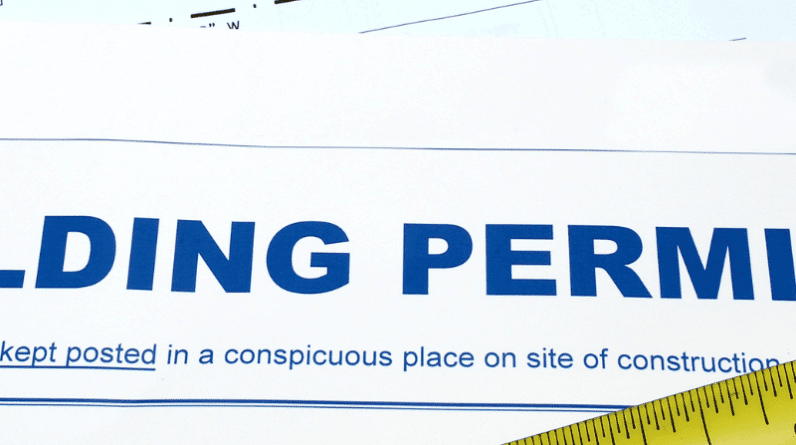
In the quest to transform a humble garage into a captivating space, one must tread with caution, for amidst the creativity lies a labyrinth of permits and regulations. Today, we delve into the realm of garage conversion permits, shedding light on the intricate web of rules that govern this enchanting endeavor.
Understanding the Need for Permits:
Before embarking on a garage conversion odyssey, it is essential to grasp the purpose of permits and regulations. These governmental guidelines serve to ensure the safety and compliance of construction projects. In the context of garage conversions, obtaining the necessary permits is crucial to avoid potential penalties, legal repercussions, and disruptions to your dream project.
1. Research Your Local Building Codes:
The starting point of any garage conversion is thorough research. Investigate your local building codes and zoning regulations to understand what is permissible in your area. Each locality may have specific guidelines regarding setbacks, building heights, and usage of converted spaces. Familiarizing yourself with these codes will set the foundation for a seamless transformation.
2. The Permit Application Process:
Once you have a firm grasp of the local regulations, it’s time to navigate the permit application process. Reach out to your local building department or municipal authority to inquire about the required permits for your garage conversion. The application process may involve submitting detailed plans, obtaining inspections, and paying fees. Patience and attention to detail are key during this phase.
3. Garage Conversion vs. Accessory Dwelling Unit (ADU):
One of the primary considerations in the permit process is distinguishing between a garage conversion and an Accessory Dwelling Unit (ADU). While a garage conversion typically transforms the space into a functional room, an ADU is a separate living unit, often with its own entrance, kitchen, and bathroom. The regulations for ADUs may be more stringent due to their residential nature, so it’s crucial to identify which classification your project falls under.
4. Impact on Property Value and Insurance:
Understanding the impact of garage conversions on property value and insurance coverage is equally significant. In some cases, a permitted garage conversion can increase the overall value of your property, making it an attractive feature for potential buyers. Additionally, notifying your insurance company about the conversion ensures that your home is adequately covered in the event of any mishaps.
5. Building Codes and Safety Requirements:
Compliance with building codes and safety requirements is the cornerstone of any successful garage conversion. From electrical systems to structural modifications, every aspect must meet the stringent standards set forth by local authorities. Hiring licensed professionals to handle specialized tasks ensures that your project is executed to code and guarantees the safety of the converted space.
In conclusion, the journey of garage conversion permits and regulations requires diligence, research, and adherence to the guidelines set by local authorities. Embrace the process as an integral part of your transformation, for it safeguards the integrity of your project and paves the way for a captivating space that stands the test of time.
Remember, the key to a seamless and enchanting garage conversion lies in the harmony of creativity and compliance. Navigate the labyrinth with care, and may your transformed garage flourish as a testament to your vision and dedication.
FAQ – Garage Conversion Permits and Regulations
1. Why do I need permits for a garage conversion?
Permits for a garage conversion are essential to ensure compliance with local building codes and regulations. They are required by governmental authorities to verify that the project meets safety standards and zoning requirements. Obtaining permits protects you from potential legal issues and penalties and ensures that your conversion is done correctly and safely.
2. How do I find out about the specific regulations and codes for my area?
To find out about the specific regulations and codes for your area, contact your local building department or municipal authority. They will provide you with information on the required permits, guidelines for the conversion, and any other relevant rules. Thorough research and understanding of local codes are crucial before starting your garage conversion.
3. What is the difference between a garage conversion and an Accessory Dwelling Unit (ADU)?
A garage conversion typically transforms the garage into a functional room, such as a playroom, office, or guest room, while retaining its status as part of the primary residence. On the other hand, an Accessory Dwelling Unit (ADU) is a separate living unit, often with its own entrance, kitchen, and bathroom, that can be used as an independent living space. ADUs may have stricter regulations due to their residential nature.
4. How does a permitted garage conversion impact my property value and insurance?
A permitted garage conversion can positively impact your property value by adding extra usable space and functionality to your home. It may make your property more appealing to potential buyers. However, it’s important to inform your insurance company about the conversion to ensure that your home is adequately covered in case of any accidents or damages.
5. Can I handle all aspects of the garage conversion myself, or do I need professional assistance?
The complexity of a garage conversion varies based on your expertise and the specific requirements in your area. While some aspects, like design and decoration, can be handled by homeowners, certain tasks, such as electrical work and structural modifications, may require professional assistance. Hiring licensed professionals ensures that the conversion is done safely and in compliance with building codes.
6. How long does the permit application process usually take?
The permit application process duration depends on your location and the complexity of the project. It may take a few weeks to a couple of months, considering the time required for plan reviews, inspections, and any revisions that might be necessary. Starting the application process early and being proactive in meeting requirements can help expedite the process.
7. Can I convert my garage without permits and regulations?
Converting your garage without obtaining the necessary permits and adhering to regulations is not recommended. It can lead to legal issues, fines, and potential hazards due to non-compliance with safety standards. To ensure a successful and trouble-free conversion, it is essential to follow the proper permitting process and adhere to local building codes.





